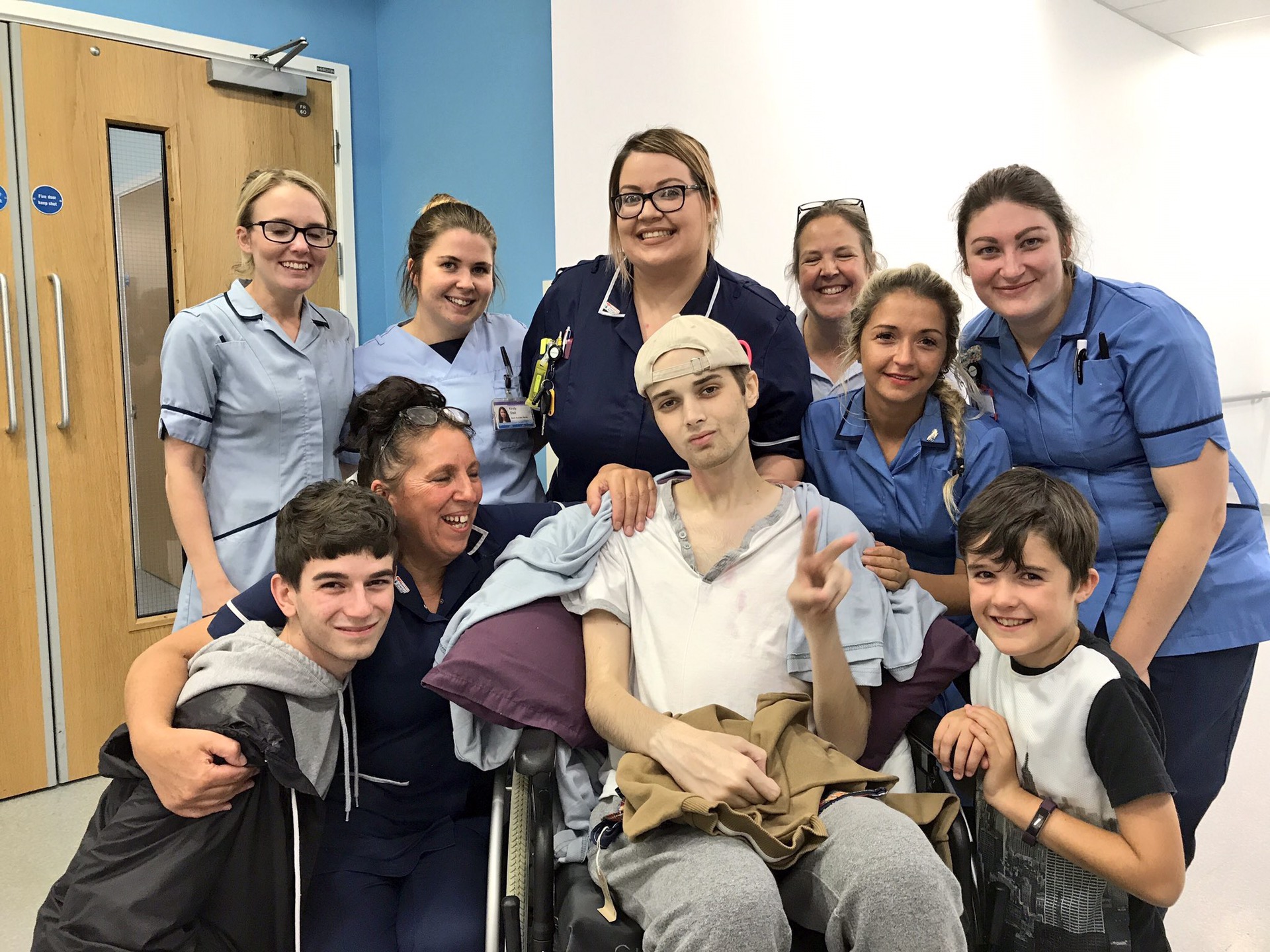For Dean.
In July last year, I came across an article on Buzzfeed about a young cancer patient who forced the UK fertility authority to clarify the rules on whether same sex couples had the same rights to frozen sperm as heterosexual ones. That young man is Dean Eastmond, and in said article, it mentioned that he was being treated at the Queen Elizabeth Hospital in Birmingham, where I am also based for my many complex medical needs. As someone who had also been diagnosed with cancer at an early age and being nearby, I reached out to him on Twitter, just to let him know that he was not alone, that even when the odds are not in your favour you can survive, and that if he needed someone to talk to who had come out the other side of cancer, I was there. I will be forever grateful that he took me up on that. In such a short space of time, he has made more of an impact upon me and the world than I think he really grasps. I will not call him brave, or inspirational, because I know how much he hates it. What I will call him is determined. Eloquent. Generous. Intelligent. Compassionate. Mature. You will see why. Long before Dean was diagnosed with cancer, he was already an acclaimed journalist, having written for publications such as The Independent, The Guardian, and Dazed & Confused to name a few. Dealing with difficult topics was not something new to him, as in 2015 he wrote an incredibly moving and eye-opening piece about being raped by another man, a subject still not regularly discussed in the media. His skills as a writer have not been put aside while sick, in fact quite the opposite: since he was diagnosed, Dean has set up a free quarterly LGBT lifestyle magazine called HISKIND with co-founder Josh Fletcher, and has seen the first two issues go to print, the second coinciding with this year's London Pride. He saw the first draft while he was in Florida receiving proton beam therapy, a form of radiotherapy that spares non-cancerous tissue from damage, which he was able to have thanks to the NHS and the widespread support of the LGBT community and his friends and family who all contributed to help raise £20,000 to pay for expenses while he and his mum were out there. During his trip, he didn't stop working, going to interview members of the KKK about their views and visiting the site of the Pulse nightclub tragedy, a moment he felt a poignant connection to, as it happened at the same time he was diagnosed. At a time he felt most alone, he found solace at a vigil for the victims, knowing he was part of a worldwide community who care for each other in the darkest of times.
He's not just hard-working. He is constantly thinking about other people. When he received the news from his doctors that his treatment had been unsuccessful, we were direct messaging, and after explaining in more detail what was going on with him (because I need all the information all the time), he apologised for talking about himself so much and asked me how I was getting on with my considerably more minor medical issues. He is still trying to help young people across the world cope with self-esteem problems by writing an excellent article for Teen Vogue about self-love while enduring cancer treatment, arguably something which can strip you of all sense of who you are, yet he found a way to be positive about it.
In the last couple of months, after he discovered that his cancer journey was, in fact, not over, he has continued to be resilient, vowing to not be beaten by some rogue cells deciding to multiply inside him. He still manages to have hope and make me laugh, inbetween the involuntary whimpers that come with the unrelenting pain that he is in. I am so glad that Attitude chose to honour him at their Pride awards this year for the work he has done, because he deserves to be told how brilliant he is, and the world needs to know. He has taught me so much - mainly, that even when I feel like garbage, I don't need to be a slug. I wish I had got to know him sooner, that we could have crossed paths without having cancer in common, because it has been a privilege. Now he's not just a fellow patient or this amazing journalist, he's my friend, the person I think of every time I eat a cinnamon bun or wear something in millennial pink. I once told him that as a young person with cancer, you will end up going to more funerals than you can count. I love him, and I really don't want to go to his.
